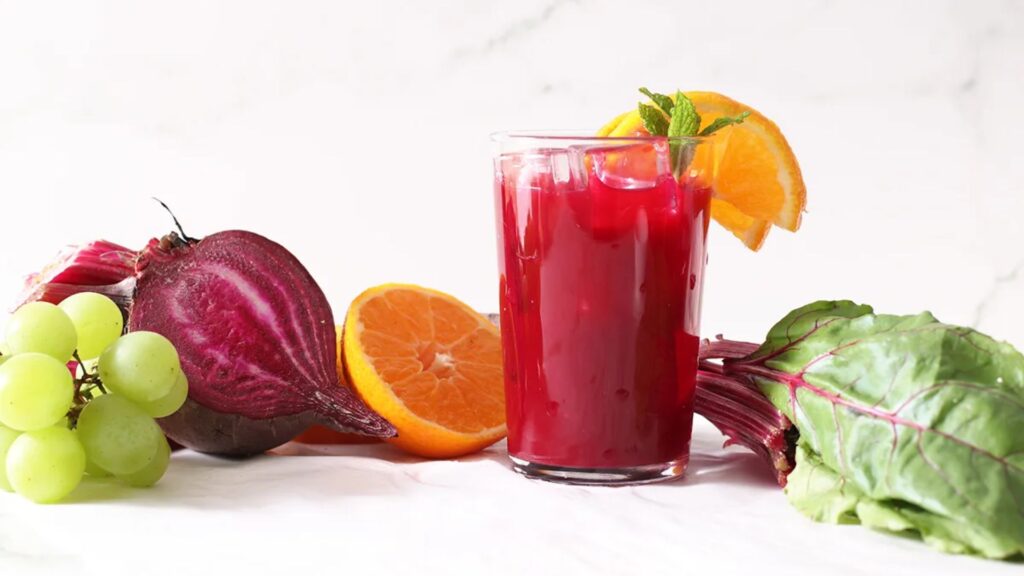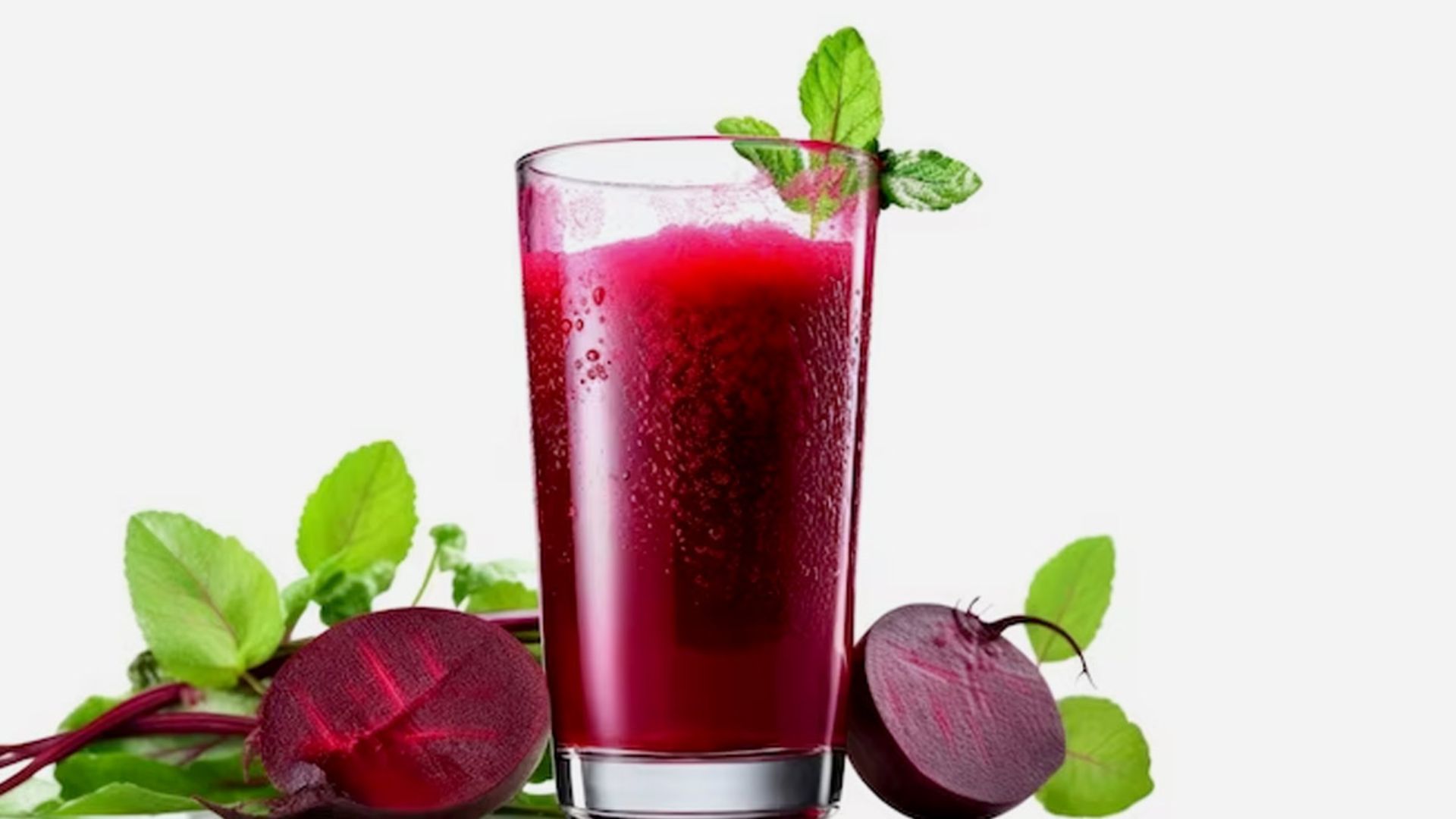Drinking beetroot juice daily can significantly improve heart health post-menopause. The minerals in beetroot enhance bone health, often compromised during perimenopause and menopause due to low calcium levels.
Beetroot is rich in nitrates, which dilate blood vessels, increasing oxygen transport and absorption. This helps regulate blood pressure. Additionally, the antioxidants in beetroot, called betalains, reduce oxidative stress and inflammation, benefiting heart health. Beetroot also contains phytoestrogens that mimic estrogen, whose levels drop during menopause, potentially leading to hypertension and increased inflammation.
Nutrition experts emphasize that beetroot juice boosts nitric oxide levels, maintaining blood vessel elasticity and enhancing blood flow. This is crucial as post-menopausal women often face cardiovascular changes and insulin resistance due to reduced estrogen levels, affecting blood vessel function.

Beetroot Juice
Beetroot Juice Recipe
Ingredients:
– 1 medium beetroot, peeled and chopped
– 1 medium carrot, peeled and chopped
– 1 small piece of ginger, peeled
– 1/2 lemon (optional)
– Water as needed
Instructions:
- Place the beetroot, carrot, and ginger in a juicer.
- Add a small amount of water to help blend the ingredients smoothly.
- Juice until smooth.
- Add lemon juice for extra flavor (optional).
- Pour into a glass and enjoy!
Vegetables to Add for Menopause Support:
– Carrots: Rich in beta-carotene and fiber.
– Spinach: High in iron and magnesium.
– Kale:Packed with calcium and vitamin K.
– Cucumbers: Hydrating and low in calories.
– Celery: Contains antioxidants and reduces inflammation.
– Ginger: Helps with digestion and reduces nausea.
These vegetables enhance the nutritional value of the juice, providing additional support for women going through menopause. Regular consumption of this juice can help maintain heart health, improve bone strength, and boost overall well-being.























